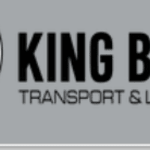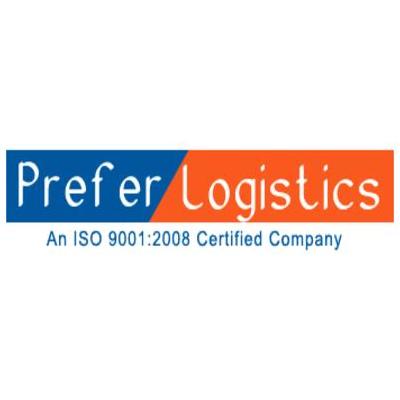Why Vehicle Booking Software Is a Game-Changer for Fleets?
Fleet managers are under increasing pressure in today's fast-paced environment, where advanced technology is upgraded to maximise resources, reduce expenses, and guarantee seamless operations for numerous vehicles and users.
Vehicle booking software for arranging cars is a real game-changer in this situation. The entire booking process is automated, and real-time information on vehicle availability, utilisation, and performance.
This makes fleet management a data-driven and efficient system with hassle hassle-free experience. Let's start to figure out the reason behind the vehicle booking software's success.
Real-Time Scheduling System
Some transportation software makes it difficult to provide a seamless scheduling system in real-time. It's because of its lack of appropriate feature integration.
But a Vehicle booking software comes with a perfect solution that allows you to provide real-time updates on vehicle availability and scheduling in your taxi booking app.
The system continuously updates the status of each vehicle in the fleet, including whether it is available, booked, in use, undergoing maintenance, or reserved for real-time scheduling.
So, the user can efficiently view their current order status and get notified of recent updates, which increases user engagement.
It is one of its most potent capabilities, greatly enhancing user convenience and fleet efficiency.
Efficient Supply and Logistics
In order to minimise operational delays, reduce expenses, and guarantee on-time delivery, effective supply and logistics are essential to vehicle management.
Route planning, vehicle allocation, inventory tracking, and delivery timetables are all automated by modern vehicle management software, which unifies these procedures into a single platform.
Driver management software uses real-time traffic data and delivery priorities to suggest the most efficient routes, saving fuel and time.
It automatically assigns the right vehicle for each job based on load size, location, and availability, improving resource utilization.
Effective scheduling of vehicle usage and delivery schedules reduces wasted travel and delays, increasing overall output.
Vehicle management software helps entrepreneurs to manage their supply chains better by making sure vehicles are used efficiently and deliveries happen smoothly.
Minimize Congestion
By better scheduling and route optimisation, vehicle management software helps ease traffic congestion.
It determines the quickest, least congested routes for every journey by analysing traffic conditions in real time.
By spreading out trips to avoid periods of peak congestion, this keeps vehicles from becoming stranded in heavy traffic.
Vehicle management software helps fleets prevent bottlenecks, cut down on delays, and enhance traffic flow by controlling when and where trucks travel.
This improves the efficiency and environmental friendliness of transportation by reducing emissions, which saves driver time and petrol.
Ensure High-Standard Security
Managing cars, drivers, and sensitive data requires a high level of security.
Enterprise-level security features are integrated into modern driver and vehicle management software to safeguard your assets, data, and operations at every stage.
Vehicle booking software is essential for safeguarding user integrity, vehicle assets, and sensitive data in addition to being convenient.
Modern platforms are equipped with high-standard security mechanisms to provide constant, safe, and restricted access.
Driver management software supports the audit trails and activity logs for monitoring driver activities like Check-in/check-out times, completed trips, route changes, and breaks.
It enables traceability and accountability for misuse or policy violations.
It allows the drivers to update their licenses and documents in the vehicle booking software to ensure authorized access.
https://www.trioangle.com/transport-management-software/
Summing Up!
Fleet management is revolutionised by vehicle booking software, which makes scheduling easier, increases productivity, and gives real-time visibility into vehicle usage.
Removing manual errors, cutting expenses, and improving resource allocation help firms run more efficiently and intelligently.
Adopting vehicle booking software is a calculated step towards a more profitable and flexible fleet operation, not merely a decision.
https://www.trioangle.com/taxi-dispatch-software/
#bookingsoftware #drivermanagementsoftware #taxibusiness #taxicab
Fleet managers are under increasing pressure in today's fast-paced environment, where advanced technology is upgraded to maximise resources, reduce expenses, and guarantee seamless operations for numerous vehicles and users.
Vehicle booking software for arranging cars is a real game-changer in this situation. The entire booking process is automated, and real-time information on vehicle availability, utilisation, and performance.
This makes fleet management a data-driven and efficient system with hassle hassle-free experience. Let's start to figure out the reason behind the vehicle booking software's success.
Real-Time Scheduling System
Some transportation software makes it difficult to provide a seamless scheduling system in real-time. It's because of its lack of appropriate feature integration.
But a Vehicle booking software comes with a perfect solution that allows you to provide real-time updates on vehicle availability and scheduling in your taxi booking app.
The system continuously updates the status of each vehicle in the fleet, including whether it is available, booked, in use, undergoing maintenance, or reserved for real-time scheduling.
So, the user can efficiently view their current order status and get notified of recent updates, which increases user engagement.
It is one of its most potent capabilities, greatly enhancing user convenience and fleet efficiency.
Efficient Supply and Logistics
In order to minimise operational delays, reduce expenses, and guarantee on-time delivery, effective supply and logistics are essential to vehicle management.
Route planning, vehicle allocation, inventory tracking, and delivery timetables are all automated by modern vehicle management software, which unifies these procedures into a single platform.
Driver management software uses real-time traffic data and delivery priorities to suggest the most efficient routes, saving fuel and time.
It automatically assigns the right vehicle for each job based on load size, location, and availability, improving resource utilization.
Effective scheduling of vehicle usage and delivery schedules reduces wasted travel and delays, increasing overall output.
Vehicle management software helps entrepreneurs to manage their supply chains better by making sure vehicles are used efficiently and deliveries happen smoothly.
Minimize Congestion
By better scheduling and route optimisation, vehicle management software helps ease traffic congestion.
It determines the quickest, least congested routes for every journey by analysing traffic conditions in real time.
By spreading out trips to avoid periods of peak congestion, this keeps vehicles from becoming stranded in heavy traffic.
Vehicle management software helps fleets prevent bottlenecks, cut down on delays, and enhance traffic flow by controlling when and where trucks travel.
This improves the efficiency and environmental friendliness of transportation by reducing emissions, which saves driver time and petrol.
Ensure High-Standard Security
Managing cars, drivers, and sensitive data requires a high level of security.
Enterprise-level security features are integrated into modern driver and vehicle management software to safeguard your assets, data, and operations at every stage.
Vehicle booking software is essential for safeguarding user integrity, vehicle assets, and sensitive data in addition to being convenient.
Modern platforms are equipped with high-standard security mechanisms to provide constant, safe, and restricted access.
Driver management software supports the audit trails and activity logs for monitoring driver activities like Check-in/check-out times, completed trips, route changes, and breaks.
It enables traceability and accountability for misuse or policy violations.
It allows the drivers to update their licenses and documents in the vehicle booking software to ensure authorized access.
https://www.trioangle.com/transport-management-software/
Summing Up!
Fleet management is revolutionised by vehicle booking software, which makes scheduling easier, increases productivity, and gives real-time visibility into vehicle usage.
Removing manual errors, cutting expenses, and improving resource allocation help firms run more efficiently and intelligently.
Adopting vehicle booking software is a calculated step towards a more profitable and flexible fleet operation, not merely a decision.
https://www.trioangle.com/taxi-dispatch-software/
#bookingsoftware #drivermanagementsoftware #taxibusiness #taxicab
Why Vehicle Booking Software Is a Game-Changer for Fleets?
Fleet managers are under increasing pressure in today's fast-paced environment, where advanced technology is upgraded to maximise resources, reduce expenses, and guarantee seamless operations for numerous vehicles and users.
Vehicle booking software for arranging cars is a real game-changer in this situation. The entire booking process is automated, and real-time information on vehicle availability, utilisation, and performance.
This makes fleet management a data-driven and efficient system with hassle hassle-free experience. Let's start to figure out the reason behind the vehicle booking software's success.
Real-Time Scheduling System
Some transportation software makes it difficult to provide a seamless scheduling system in real-time. It's because of its lack of appropriate feature integration.
But a Vehicle booking software comes with a perfect solution that allows you to provide real-time updates on vehicle availability and scheduling in your taxi booking app.
The system continuously updates the status of each vehicle in the fleet, including whether it is available, booked, in use, undergoing maintenance, or reserved for real-time scheduling.
So, the user can efficiently view their current order status and get notified of recent updates, which increases user engagement.
It is one of its most potent capabilities, greatly enhancing user convenience and fleet efficiency.
Efficient Supply and Logistics
In order to minimise operational delays, reduce expenses, and guarantee on-time delivery, effective supply and logistics are essential to vehicle management.
Route planning, vehicle allocation, inventory tracking, and delivery timetables are all automated by modern vehicle management software, which unifies these procedures into a single platform.
Driver management software uses real-time traffic data and delivery priorities to suggest the most efficient routes, saving fuel and time.
It automatically assigns the right vehicle for each job based on load size, location, and availability, improving resource utilization.
Effective scheduling of vehicle usage and delivery schedules reduces wasted travel and delays, increasing overall output.
Vehicle management software helps entrepreneurs to manage their supply chains better by making sure vehicles are used efficiently and deliveries happen smoothly.
Minimize Congestion
By better scheduling and route optimisation, vehicle management software helps ease traffic congestion.
It determines the quickest, least congested routes for every journey by analysing traffic conditions in real time.
By spreading out trips to avoid periods of peak congestion, this keeps vehicles from becoming stranded in heavy traffic.
Vehicle management software helps fleets prevent bottlenecks, cut down on delays, and enhance traffic flow by controlling when and where trucks travel.
This improves the efficiency and environmental friendliness of transportation by reducing emissions, which saves driver time and petrol.
Ensure High-Standard Security
Managing cars, drivers, and sensitive data requires a high level of security.
Enterprise-level security features are integrated into modern driver and vehicle management software to safeguard your assets, data, and operations at every stage.
Vehicle booking software is essential for safeguarding user integrity, vehicle assets, and sensitive data in addition to being convenient.
Modern platforms are equipped with high-standard security mechanisms to provide constant, safe, and restricted access.
Driver management software supports the audit trails and activity logs for monitoring driver activities like Check-in/check-out times, completed trips, route changes, and breaks.
It enables traceability and accountability for misuse or policy violations.
It allows the drivers to update their licenses and documents in the vehicle booking software to ensure authorized access.
https://www.trioangle.com/transport-management-software/
Summing Up!
Fleet management is revolutionised by vehicle booking software, which makes scheduling easier, increases productivity, and gives real-time visibility into vehicle usage.
Removing manual errors, cutting expenses, and improving resource allocation help firms run more efficiently and intelligently.
Adopting vehicle booking software is a calculated step towards a more profitable and flexible fleet operation, not merely a decision.
https://www.trioangle.com/taxi-dispatch-software/
#bookingsoftware #drivermanagementsoftware #taxibusiness #taxicab
0 Comments
0 Shares





